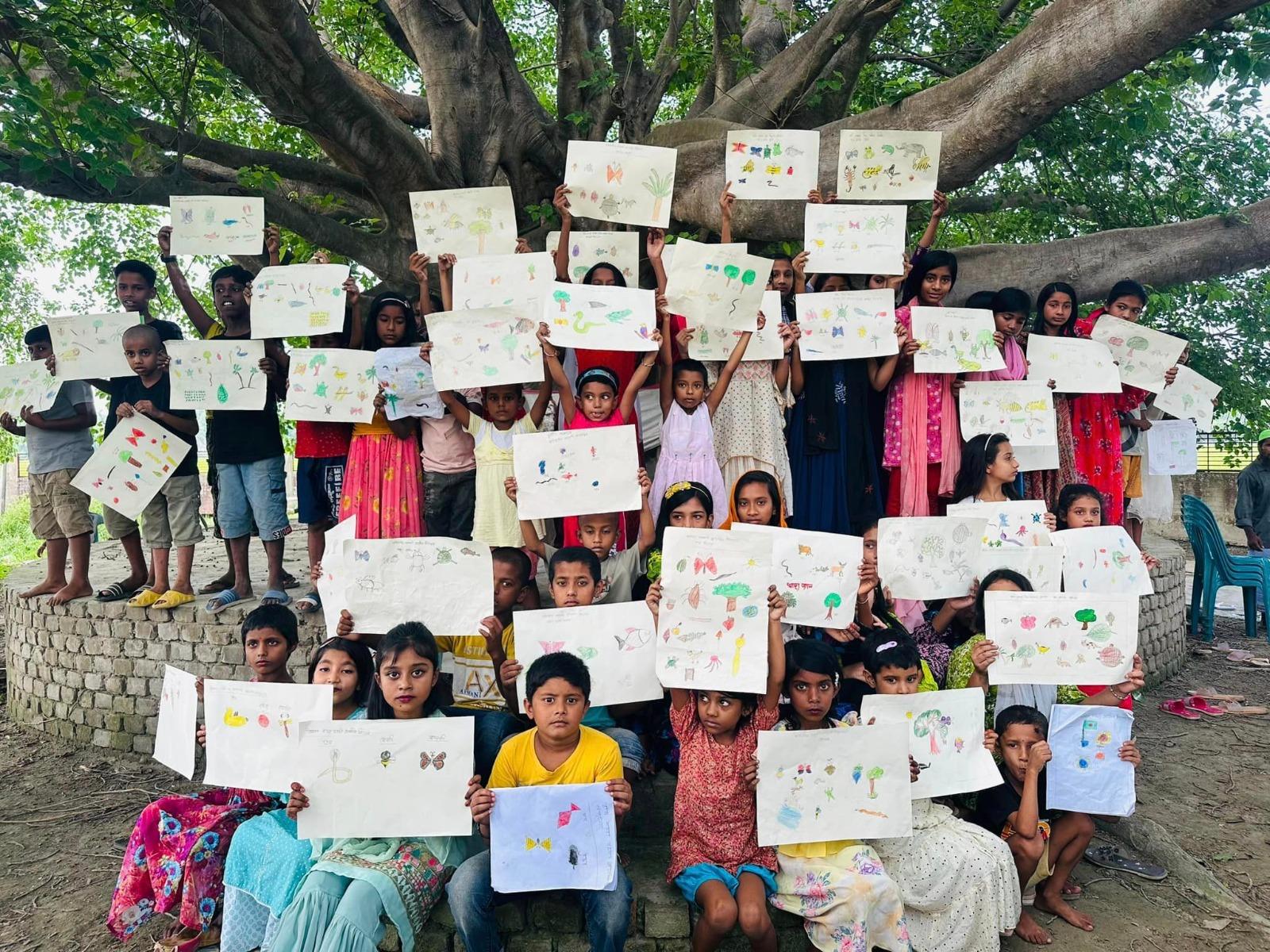Leading up to World Environment Day, PAN Asia Pacific (PANAP) and its partners from across the region held various activities to underscore the need to protect pollinators and safeguard children’s rights to a clean and healthy environment.
As part of PANAP’s Protect Our Children 2024 campaign, groups held youth-centered awareness raising activities that began on World Bee Day and culminated on World Environment Day, with this year’s theme of “Accelerating land restoration, drought resilience & desertification progress.” The activities aimed to raise awareness on the importance of pollinators and enjoin schools, farming communities and policymakers to advocate for replacing pesticides with agroecological alternatives.
“Protecting pollinators is crucial if we are to restore land and boost biodiversity. Widespread use of pesticides, especially Highly Hazardous Pesticides (HHPs), in agriculture and food systems have caused an alarming decline in pollinators that help feed the world. Pesticides systematically poison our air, water, and lands. This has affected the ability of pollinators to survive and perform ecosystem roles inextricably linked to food security,” said Sarojeni Rengam, PANAP executive director.
“Countries have committed to take action to phase out HHPs under the new Global Framework on Chemicals, as well as action to reduce pesticide load by half to halt biodiversity loss under the Global Biodiversity Framework. We must seriously consider the implications of shrinking pollinator populations to our children’s future and act now to eliminate one of the most established culprits–toxic pesticides,” she added.
Around 75 percent of major food crops are dependent on pollinators. Recent studies show that the world is losing 3 to 5 percent of its fruit, vegetable and nut production because of shrinking pollinator populations and lower pollinator diversity. This decreased availability of nutritious food may lead to health impacts that can cause an estimated 427,000 excess deaths per year.
PANAP recently published Buzzing Bees: The Ecological Lifelines, which lists the types of pesticides that are toxic to bees, their poisoning symptoms, and how pesticides are a major threat to their survival. It also featured small-scale beekeepers across Asia who persist in sustainable beekeeping despite the challenges posed by chemical-intensive agriculture.
On World Environment Day, our partner Thanal Agroecology Centre, in collaboration with Meenagadi Panchayat, held essay competitions and tree planting events in three schools in Wayanad, Kerala to encourage the next generation to take active roles in environmental conservation. Earlier in May, Thanal’s summer camp in Trivandrum hosted educational and hands-on workshops to prepare children to combat climate change and protect biodiversity, ending with a nature walk, which inspired one of its students to donate a painting to the center.
In Bangladesh, our partner BARCIK will hold week-long discussions, rallies, agroecological cultivation in homesteads, and youth-led essay and art competitions in Singair, Manikganj District to celebrate World Environment Day under the theme “Our Land, Our Future.” Earlier in May, an Agro-biodiversity Fair in 10 villages in Manikganj district was held by BARCIK together with Local Agro Biodiversity Conservation Committee and Green Coalition. Native seeds, uncultivated food crops, and local vegetables and fruits were showcased, and smallholder farmers formed a human chain and pledged to avoid herbicides in order to protect pollinators and uncultivated food plants, which are prized for their nutritional and medicinal value.
Also in Bangladesh, our partner SHISUK, together with the North Bengal Bee Keeper Association, organised a workshop for school children to learn about sustainable beekeeping through hands-on learning activities that taught them about the life cycle of bees, the crucial role bees play in pollination, and simple steps they can take to protect these vital creatures.
In Vietnam, our partner CGFED led students from Hai Cuong High School in Hanoi in a discussion on pesticide impacts, hands-on training on making natural pesticides, and a visit to an organic guava farm. The Vietnamese version of “Zee The Bee,” a children’s storybook by PANAP on pollinators, was also launched.
Individuals, organisations, parents, schools, and other advocates are encouraged to join PANAP’s #PollinatorsNotPesticides campaign, which will run until World Children’s Day on November 20.
Contact poc@panap.net for more information








Discussion about this post